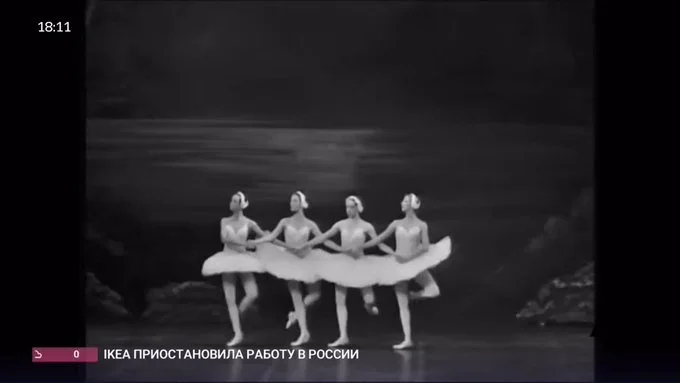Russian independent media shut down for telling the truth about Ukraine invasion
Independent TV channel Dozhd signs off with Swan Lake
Russia's illegal war of choice in Ukraine has triggered an unprecedented set of economic and cultural sanctions, the impact of which will be felt by ordinary people throughout the country.
At the same time, Vladimir Putin's government has initiated a wave of internal repression. The past 48 hours has seen the closure of most of what remains of the country's independent media and intimidation of others who have strayed from the government's official narrative on Ukraine. Organisations straying from the approved language of a "special military operation" are liable to experience police visits or have their websites blocked.
Media outlets which have closed this week include two which are well-known abroad: TV Dozhd (Rain) and Ekho Moskvy, which has been running since the fall of the Soviet Union.
At the end of Dozhd's final broadcast on Thursday, studio footage cut to an old recording of Swan Lake, a call back to the coup of 1991, when there was a news blackout across state media with ballet broadcast instead.
The repression of journalism has been felt country-wide. The VK-Media group, which runs several local newspapers in the Urals region, carried an anti-war message on the front page of several of its local papers on Wednesday. In response, VK Media reportedly received a visit from police who confiscated copies of newspapers. In Yakutsk, newspaper vendors apparently refused to sell a newspaper with an anti-war message on its front page, due to the risks involved.
Bilingual online media organisation Meduza, which has had to relocate to Latvia due to the restrictions placed on media and civil society in Russia, has published an editorial marking what it calls the start of official state censorship in the country.
Within a few days, maybe even today, it is possible that there will be no independent media left in Russia. Very soon, it’s possible that anyone in Russia seeking information from the “enemy voices” of independent sources will need to make the same efforts as those who lived behind the Iron Curtain.
The federal censor’s demand that we refer to the war in Ukraine as a “special military operation”; their letters requiring news outlets to take down reports about the war; their orders to block the websites of Taiga.info, Doxa, The Village, TV Rain, Ekho Moskvy radio station (among many others) — these actions constitute censorship, plain and simple.
Notwithstanding Russia's increasingly active online censorship, social media - and messaging app Telegram in particular - is an important news source for people in Russia, Belarus and Ukraine alike.
The situation in Russia is likely to deteriorate in the coming days. As the destruction of Ukraine continues, those in Russia who rely on broadcast media for news will have the nature and extent of the war that is being waged in their name purposefully hidden from them.

